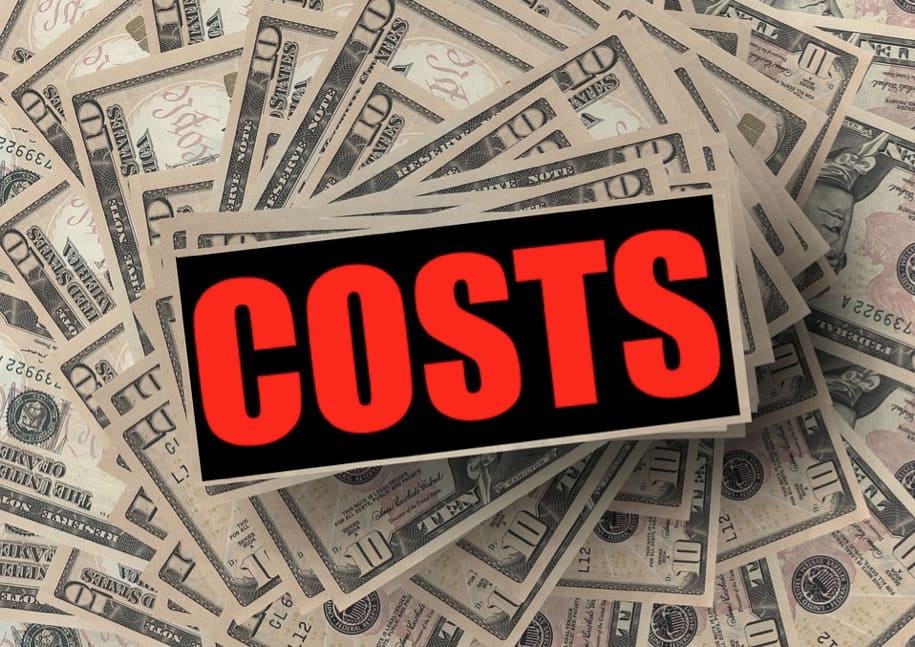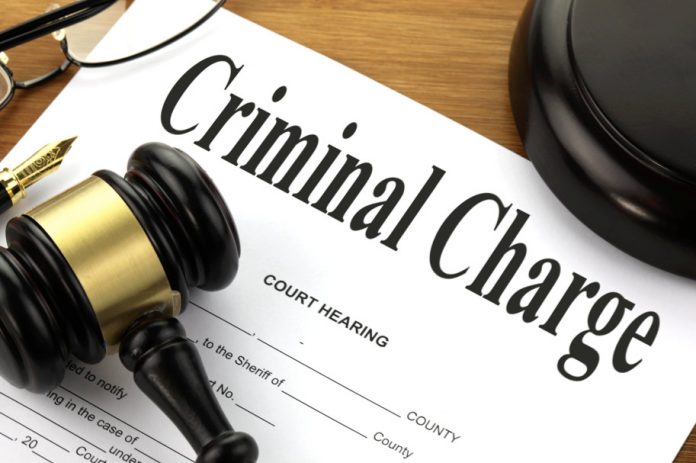There are a lot of misconceptions about what it will cost someone to get arrested. Most people believe that they won’t have to worry about these costs because they have good jobs, own their homes, or have never been in trouble before. Tough luck. It doesn’t matter who you are or how much money you make. If you’re accused of a crime and convicted, you will suffer financial consequences—and they can be significant.
It’s easy to be cavalier about minor legal scrapes, but the cost of a criminal charge is real. The immediate consequences are usually relatively minor:
- A trip to the police station
- A night in jail
- Perhaps some court costs and fines
But then there’s the lingering stigma. Even if you are found not guilty, the financial and emotional cost of a criminal charge can be excruciating.
How much does a criminal case cost?

In reality, it depends on many factors including which state you live in, the type of crime committed, and many other factors.
The average person convicted of a misdemeanor crime in Pennsylvania can expect to spend more than $1,000 in direct costs (fines, fees, restitution) and indirect costs (time spent dealing with the case as well as time lost from work). The total cost of a misdemeanor conviction can easily exceed $2,000. A felony conviction can lead to even greater costs.
Someone arrested for a crime spends an average of 11 days dealing with the case before it’s dismissed or resolved by guilty plea or trial outcome — and that’s not counting any time already spent in jail. That eats up nearly two weeks’ worth of work time at $10 per hour, which means the true cost of an arrest is around $3,700. And that doesn’t count any time lost from work while sitting at home waiting to go to court or otherwise dealing with the case.
The Direct Impact of a Criminal Charge – Finances
If you’ve been charged with a crime, you may be wondering how much it will cost you.
The answer is: it depends. Better yet consult a criminal defense lawyer from Donohue Law, LLC to understand more about criminal charges.
Here’s an overview of the financial hit you’ll take if you’re arrested:
The amount of bail.
Obviously, this will have an impact on how much you’ll have to pay. If you want an idea of how much bail might cost you, contact your local sheriff’s office and ask about their policies and fees. The more serious charges against you, the more likely you’ll need cash upfront.
Fines, fees, jail time, and legal costs
A criminal charge can result in some major expenses: fines, fees, restitution, community service, and even time in jail or prison. But many of those costs are determined by the court system, and some aren’t even mandatory.
In addition to the fines and fees you must pay, there is also the potential for legal costs. If a conviction results in a prison sentence, your lawyer will bill you hourly for his services. An experienced defense attorney will know what he’s worth and won’t accept less for his services.
The Indirect Impact (The Damaging Long Term Consequences – Education, Employment, and Family)
The indirect impact of a criminal charge is something that many people do not think about until it happens to them. Even though we know that it will impact our future, we do not know how it will change our lives. Some people think that they can get over it quickly, but the fact is that it can affect your life in many ways:
Your credit score may suffer.
A criminal charge means the chance of you getting hired for a job will get smaller while your chances of getting rejected by a landlord or bank will increase. Employment opportunities may also decrease due to this.
Your life savings will be affected as well.
If you have any cash savings, these may be confiscated by the police during an investigation. Your property may be seized and sold off if you are found guilty at court as well as any other assets such as cars and houses.
Employment Issues (Getting Fired or Laid off, Discrimination, Not Being Hired)
A criminal charge can lead to several negative consequences in your life. Not only do you have to deal with the legal ramifications, but the charge can also make it much more difficult for you to get a job.
Getting Fired
Tens of thousands of people lose their jobs every year because they were criminally charged or convicted of a crime. And while the majority of people who are convicted aren’t sent to prison or jail, many are fired from their jobs.
Recent research shows that about half of employers say they would fire an employee if they were convicted of a felony — even if it happened years before — and an additional 17 percent said they wouldn’t hire someone with a misdemeanor conviction.
Not Being Hired
Most companies these days run some background checks on potential employees, and they may not want to hire someone with a criminal record. According to the National Employment Law Project, approximately one in four employers use criminal background checks when hiring for non-police positions. About 85% do so for positions requiring state licenses or access to sensitive information.
Discrimination
There is also evidence that people with criminal records have difficulty finding housing. This can mean that you have to move out of your home if you’ve been evicted from where you were living because of a criminal charge. Then it makes it difficult for you to provide for yourself and your family.
Educational Issues (Being Dismissed/ Suspended/ Expelled and Difficulty getting into certain schools or programs)
Dismissed/ Suspended/ Expelled
If you are ever charged with a crime, even if the charges are dropped or dismissed, they will remain on your record. This means that any school or college will have access to this information and may use it against you when making a decision about your future. If the offense is serious enough, they may choose to dismiss you from school immediately and without notice. The offense could also result in suspension or expulsion with the possibility of being allowed back into school at a later date.
Difficulty getting into certain schools or programs
Many colleges and other institutions require background checks of their applicants, especially if they want to study in certain fields that might bring them into contact with vulnerable populations (for example, nursing). If you have a criminal record, it could block your way into that program, even if everything was off your record at the time you applied for admission. This can also be true for child care and other positions where your role will put you in close contact with children or dependents.
Family Issues (Divorce, Friends or Relatives being distant or rebuking)
When someone has a criminal charge, it doesn’t just affect them. It affects their family and friends as well. The person that got charged may lose friends or have relatives being distant or rebuke them for the charges.
A criminal charge can cause problems in your marriage. If your spouse gets charged, then the marriage will end. When a crime has been committed, many couples get divorced. Many spouses get so frustrated with their husbands or wives who made a mistake that they leave and never return. This can destroy relationships with family members too. Sometimes when a child gets charged with a crime, the parent leaves and never returns because they are embarrassed to be related to them anymore.
Divorce and losing family relationships are painful enough but it’s even worse when you’re trying to raise children independently. If you’re being raised by a single parent dealing with a criminal charge, you will most likely be affected in some way.
Remember, your reputation is everything.
There are many reasons why you would need a criminal attorney, and one of the most common is a simple drug charge. You can be charged with simple possession or possession with intent to sell. Either way, these charges can be serious if you don’t have an attorney on your side.
You should also remember that your reputation is everything and that a minor charge can end up being much more than that, depending on how it is handled in court and how the press portrays what happened in the arrest. Reputation management is something that every good criminal lawyer knows how to do well, which is why it’s important to hire someone who has experience dealing with these things before they become serious issues.


































